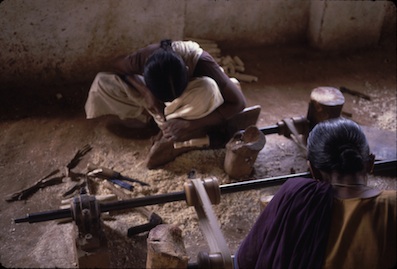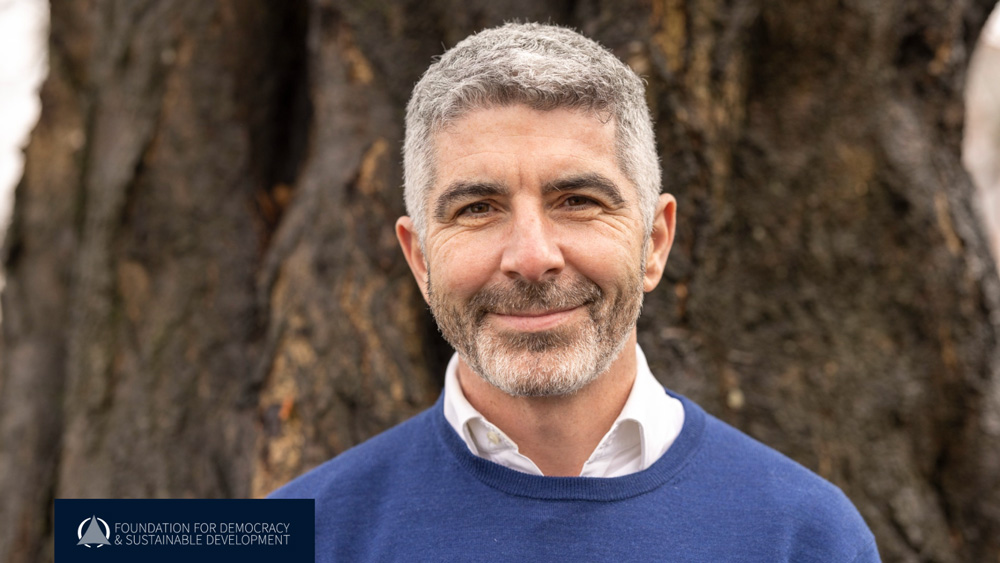
You’re probably familiar with the United Nation’s (UN)Millenium Development Goals (MDG), adopted in 2000, for improving well being for the world’s poorest. They carried the tagline, “we can end poverty.” It’s estimated that roughly 40% of the eight goals, listed at the bottom, will be met by the deadline of 2015. A new set of seventeen goals, known as the Sustainable Development Goals (SDGs) are slated for adoption in September 2015 (These goals are also listed below for reference).
From our standpoint here at the Foundation for Democracy and Sustainable Development, Goal 16 is particularly interesting. Commonly referred to as the “governance” goal, it includes 10 proposed targets* ranging across human rights, arms dealing, accountable institutions, and participatory decision-making.
Recently Vinay Bhargava, of Partnership for Transparency Fund, reported on a World Bank panel that explored governance as a sustainable development goal (“5 things you should know about governance as a proposed sustainable development goal”) . He noted an overarching theme: SDG 16 will be challenging in some particular ways. It is controversial, with governments differing on key concepts such as rule of law and accountability. Some governments were opposed because they saw governance as a sovereign issue. Yet the working group for the SDGs reconciled these differences and the Goal will probably continue to require compromises. Further, for the countries that have already been working on some of the governance issues, the Goal is expected to help legitimize what is already being done.
SDG 16 is also challenging because most of the targets are not measurable or time-bound—indicators are harder to develop. Much work will be needed to specify indicators and their monitoring. And this adds another twist. Developing institutions and practices of governance for sustainable development will take time and resources. So far these resources are largely absent from the discussion.
The UN’s upcoming 2017 World Development Report will have as its theme Governance and the Law. The relationship among quality of governance, economic development, and sustainable development is complicated. Bhargava notes that some periods of economic growth have come under conditions of arguably poor quality governance. Further debates, compromises and questions lie ahead.
*Targets for Proposed Sustainable Development Goal 16
16.1 significantly reduce all forms of violence and related death rates everywhere
16.2 end abuse, exploitation, trafficking and all forms of violence and torture against children
16.3 promote the rule of law at the national and international levels, and ensure equal access to justice for all
16.4 by 2030 significantly reduce illicit financial and arms flows, strengthen recovery and return of stolen assets, and combat all forms of organized crime
16.5 substantially reduce corruption and bribery in all its forms
16.6 develop effective, accountable and transparent institutions at all levels
16.7 ensure responsive, inclusive, participatory and representative decision-making at all levels
16.8 broaden and strengthen the participation of developing countries in the institutions of global governance
16.9 by 2030 provide legal identity for all including birth registration
16.10 ensure public access to information and protect fundamental freedoms, in accordance with national legislation and international agreements
Proposed Sustainable Development Goals
Goal 1 End poverty in all its forms everywhere
Goal 2 End hunger, achieve food security and improved nutrition and promote sustainable agriculture
Goal 3 Ensure healthy lives and promote well-being for all at all ages
Goal 4 Ensure inclusive and equitable quality education and promote lifelong learning opportunities for all
Goal 5 Achieve gender equality and empower all women and girls
Goal 6 Ensure availability and sustainable management of water and sanitation for all
Goal 7 Ensure access to affordable, reliable, sustainable and modern energy for all
Goal 8 Promote sustained, inclusive and sustainable economic growth, full and productive employment and decent work for all
Goal 9 Build resilient infrastructure, promote inclusive and sustainable industrialization and foster innovation
Goal 10 Reduce inequality within and among countries
Goal 11 Make cities and human settlements inclusive, safe, resilient and sustainable
Goal 12 Ensure sustainable consumption and production patterns
Goal 13 Take urgent action to combat climate change and its impacts*
Goal 14 Conserve and sustainably use the oceans, seas and marine resources for sustainable development
Goal 15 Protect, restore and promote sustainable use of terrestrial ecosystems, sustainably manage forests, combat desertification, and halt and reverse land degradation and halt biodiversity loss
Goal 16 Promote peaceful and inclusive societies for sustainable development, provide access to justice for all and build effective, accountable and inclusive institutions at all levels
Goal 17 Strengthen the means of implementation and revitalize the global partnership for sustainable development
UN Millenium Development Goals for 2000 to 2015
Goal 1 Eradicate extreme poverty
Goal 2 Achieve universal primary education
Goal 3: Promote Gender equality and empower women
Goal 4: Reduce child mortality
Goal 5: improve maternal health
Goal 6: combat HIV/AIDS, malaria and other diseases
Goal 7: ensure environmental sustainability
Goal 8: develop a global partnership for development



